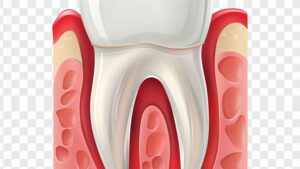At Krishees Dental, we believe that optimal oral health goes beyond regular brushing and flossing. A balanced diet plays a critical role in maintaining healthy teeth and gums, and one key nutrient that can make a significant difference is iron. Iron supports various bodily functions, including those essential for your oral health.
Why Iron Matters for Your Health
Iron is vital for transporting oxygen through the blood, supporting metabolism, and enabling various enzymatic functions in the body. Without enough iron, your body can struggle with immune function, and it can show up in your mouth too. A lack of iron can lead to mouth sores, swollen gums, and a higher vulnerability to infections.
How Iron Deficiency Affects Oral Health
Iron deficiency, or anemia, can negatively impact your oral health. When your body lacks iron, your immune system weakens, and this makes your gums more prone to conditions like gingivitis. Glossitis, a condition where the tongue becomes swollen, smooth, and sore, can also develop. In severe cases, anemia can make it harder for your body to fight infections, including those affecting the mouth.


How Iron Benefits Oral Health
- Supports Gum Health: Iron strengthens your gums by helping your immune system fight infections. Healthy gums are less likely to suffer from gum disease.
- Prevents Tooth Loss: When your iron levels are sufficient, your teeth and jawbone stay strong. Low iron can weaken the bones that support your teeth, potentially leading to tooth loss.
- Aids in Healing After Dental Procedures: If you need a dental procedure like an extraction or surgery, your body needs iron to heal properly. Iron helps regenerate tissue and reduce excessive bleeding, speeding up recovery.
- Prevents Dry Mouth: Iron deficiency can lead to dry mouth (xerostomia), which increases the risk of tooth decay and gum disease. Saliva protects your teeth, and low saliva production leaves your mouth more vulnerable.
Iron-Rich Foods for Stronger Teeth and Gums
To support your oral health, focus on iron-rich foods, such as:
Leafy Greens: Spinach, kale, and swiss chard
Red Meat: Beef, lamb, and pork
Poultry: Chicken and turkey
Fish: Salmon, tuna, and sardines
Legumes: Lentils, chickpeas, and beans
Nuts and Seeds: Almonds, sunflower seeds, and cashews
Fortified Grains: Breakfast cereals and breads
Signs of Iron Deficiency to Watch For
Recognizing the signs of iron deficiency early can help prevent more severe issues. Look out for these common symptoms:
- Fatigue or weakness
- Pale skin or gums
- Sore or swollen tongue
- Mouth sores
- Cracked or bleeding gums
- Hair loss
- Shortness of breath
If you notice any of these symptoms, consult with your healthcare provider or visit Krishees Dental for an evaluation.


Stay on Top of Your Oral Health with Krishees Dental
At Krishees Dental, we prioritize your overall health, as it directly impacts your oral well-being. Regular check-ups, a nutritious diet, and good oral hygiene are all essential for a healthy smile. If you experience any changes in your mouth, such as swollen gums, dry mouth, or persistent sores, visit us for an exam.
We understand that nutrition is integral to your dental health. If you’re concerned about your iron levels or how they might be affecting your oral health, our team is here to guide you.
Conclusion:
Iron plays a crucial role in maintaining both your overall health and your oral health. By ensuring you consume enough iron-rich foods, staying hydrated, and attending regular check-ups at Krishees Dental, you can protect your smile for years to come. Book an appointment now at Krishees Dental, and take the first step toward a healthier, more vibrant smile.


Leave a Reply